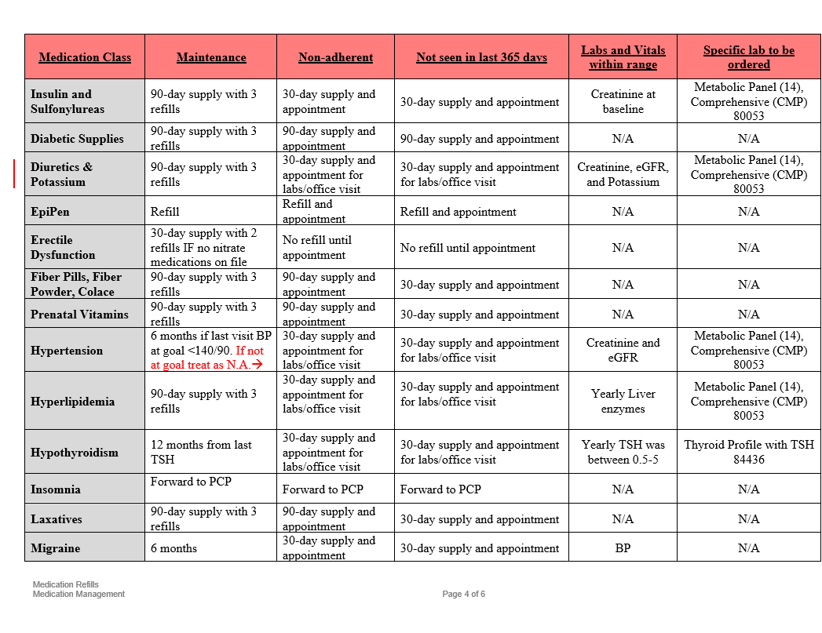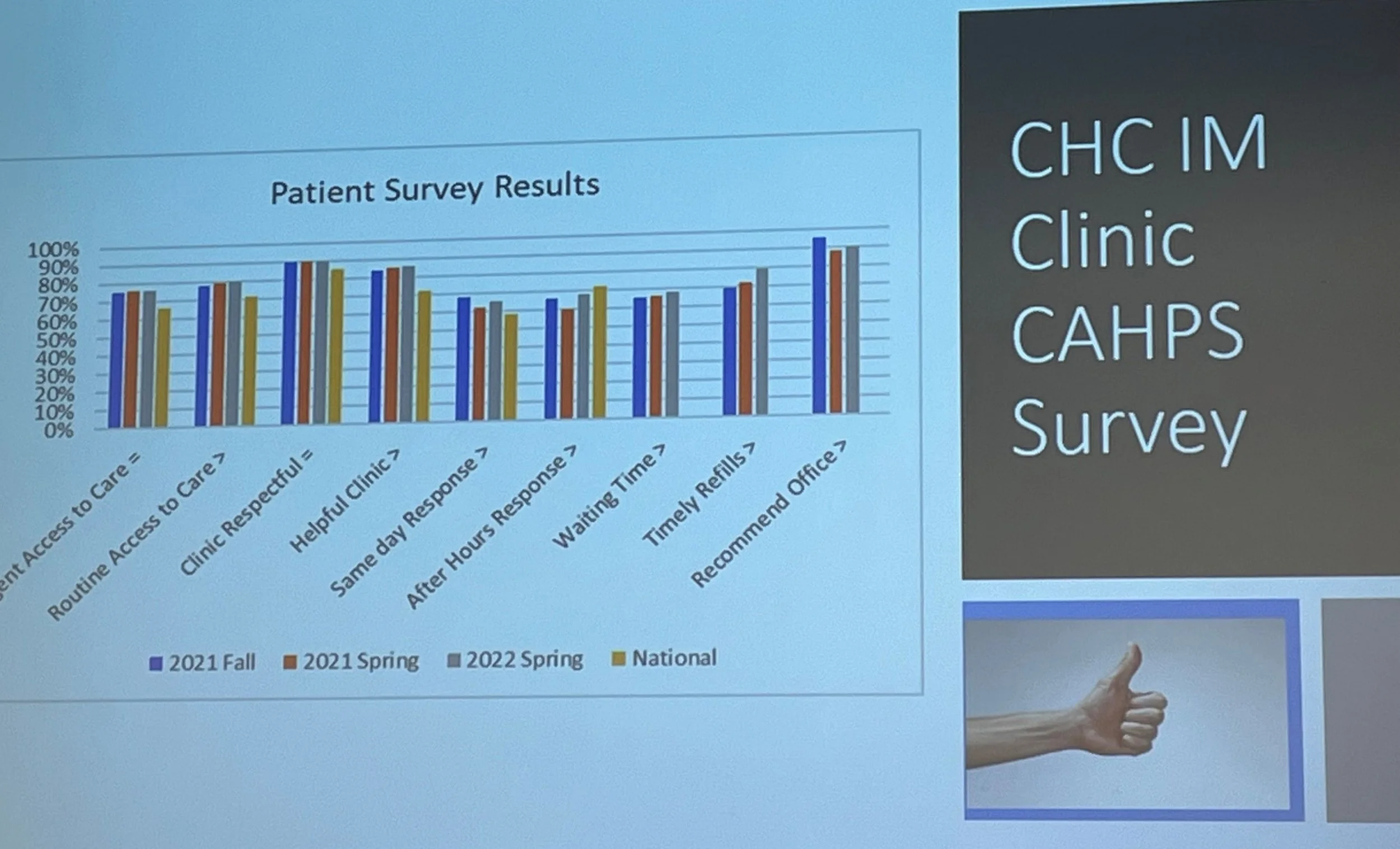Clinic details
6 attending physicians
~40 resident physicians
1 dietician
1 social worker (MSW)
1 pharmacist
2 LPNs (2 more as “transitions of care” LPNs in hospitals)
5 MAs
Contact information: Robert Badgett, MD, rbadgett@kumc.edu
Project Description
Goal: Institute a team-based medication refill protocol.
Methods: 1) A written policy was developed and overseen by a pharmacist but executed by an LPN to screen incoming medication refill requests:
Methods (cont.): 2) An "Admission, Discharge, Transfer (ADT)" feed is monitored for all clinic patients from the Kansas Health Information Network (KHIN). Every time the clinic sees that a patient is admitted to any state-wide hospital not covered by KU providers, clinic staff reaches out to that hospital to offer any help the admitting providers may need in medication reconciliation. The provider is also able to reconcile medications for patients discharged with plans to follow up in clinic at KU-CHC.
3) LPNs authorized to order necessary labs for medication monitoring under the patient's doctor's name, for approval by the doctor. The results could then be communicated to the doctor via the EHR (eClinicalWorks). Labs ordered strictly for medication refills are linked to a Z79.899 code for "medication management."
Results
As of June, 2022:
“Light days” refill authorizations include ~50 requests, all of which used to go to physicians, with predictable delays in authorizations
“Heavy day” is closer to ~100 requests
No detectable change in patient satisfaction:
Rates of hypertension control unchanged (~65-74%, depending on month)
Several potential problems with patient medications (interactions, out-of-date lab monitoring) had been identified through the protocol


